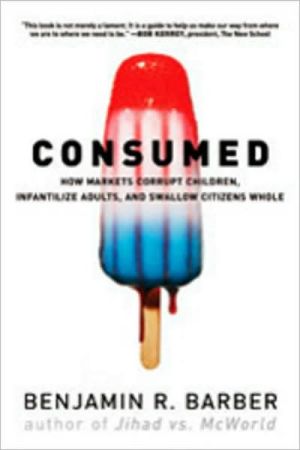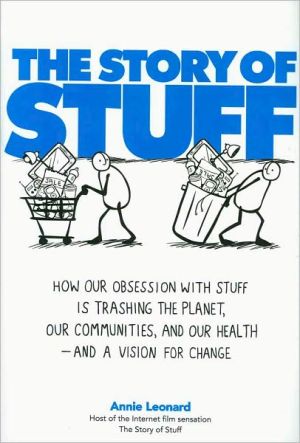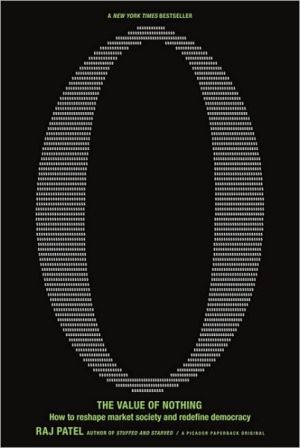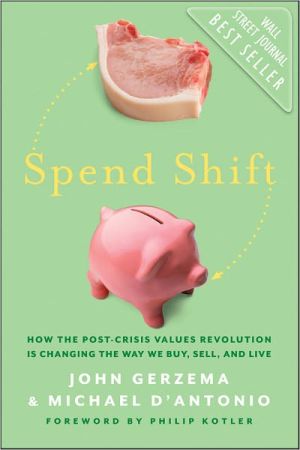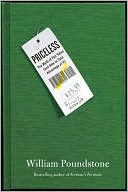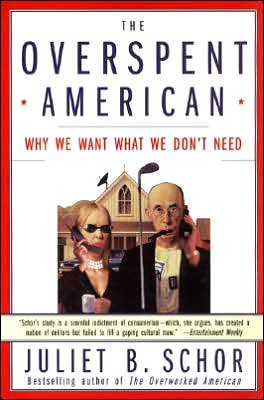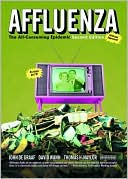Consumed: How Markets Corrupt Children, Infantilize Adults, and Swallow Citizens Whole
"Powerful and disturbing. No one who cares about the future of our public life can afford to ignore this book."—Jackson Lears\ A powerful sequel to Benjamin R. Barber's best-selling Jihad vs. McWorld, Consumed offers a vivid portrait of an overproducing global economy that targets children as consumers in a market where there are never enough shoppers and where the primary goal is no longer to manufacture goods but needs. To explain how and why this has come about, Barber brings together...
Search in google:
"Powerful and disturbing. No one who cares about the future of our public life can afford to ignore this book."—Jackson Lears The New York Times - Pamela Paul With his latest book, Barber, a political theorist at the University of Maryland, returns to familiar territory. But if Jihad provided an answer to the ubiquitous post-9/11 question "Why do they hate us?," the question behind Consumed seems to be "Who wouldn't?" Barber, for one, is put off by much of what global capitalism has wrought. Hollywood movies are cartoonish and trashy; kids reared on video games and fast food miss out on childhood's meaningful pleasures; life at the mall is soulless; much of popular culture is dreck. How all this came about takes up the bulk of his book.
Acknowledgments ixThe Birth of ConsumersCapitalism Triumphant and the Infantilist Ethos 3From Protestantism to Puerility 38The Eclipse of CitizensInfantilizing Consumers: The Coming of Kidults 81Privatizing Citizens: The Making of Civic Schizophrenia 116Branding Identities: The Loss of Meaning 166Totalizing Society: The End of Diversity 213The Fate of CitizensResisting Consumerism: Can Capitalism Cure Itself? 257Overcoming Civic Schizophrenia: Restoring Citizenship in a World of Interdependence 291Notes 341Index 383
\ Pamela PaulWith his latest book, Barber, a political theorist at the University of Maryland, returns to familiar territory. But if Jihad provided an answer to the ubiquitous post-9/11 question “Why do they hate us?,” the question behind Consumed seems to be “Who wouldn’t?”Barber, for one, is put off by much of what global capitalism has wrought. Hollywood movies are cartoonish and trashy; kids reared on video games and fast food miss out on childhood’s meaningful pleasures; life at the mall is soulless; much of popular culture is dreck. How all this came about takes up the bulk of his book.\ — The New York Times\ \ \ \ \ Barry SchwartzBarber is a distinguished political theorist who for years has been writing about the deterioration of "civil society" and what must be done to reclaim it. Many others have criticized our obsession with materialism and consumption, a theme he explored in Jihad vs. McWorld, but Barber's aim is not to be a scold. The Reagan revolution convinced us that turning the market loose would be good economics and good politics. Barber, in contrast, argues that "Once upon a time, capitalism was allied with virtues that also contributed at least marginally to democracy, responsibility, and citizenship. Today it is allied with vices which -- although they serve consumerism -- undermine democracy, responsibility, and citizenship." In other words, in the modern era, it's not so much democracy and capitalism as it is democracy or capitalism.\ — The Washington Post\ \ \ Publishers WeeklyBarber returns to the clashing models of civilization of his earlier Jihad vs. McWorld, focusing this time on the expanding global culture of market forces he claims will destory not only democracy but even capitalism, if left unchecked. He warns of a totalitarian "ethos of induced childishness" that not only seeks to turn the young into aggressive consumers but to arrest the psychological development of adults as well, "freeing" them to indulge in puerile and narcissistic purchases based on "stupid" brand loyalties. The increasing drive toward privatization compounds the problem, generating a "civic schizophrenia" where everybody wants service but nobody wants to serve. His complaint is so broad that it occasionally edges into crankiness, as he blames infantilization for ruining everything from Hollywood movies to NBA basketball; even other liberal cultural commentators, especially Steven Johnson (Everything Bad Is Good for You), come in for much criticism. Barber recognizes that the "Jihadist" rejection of consumer culture is equally undemocratic, but still believes the system can be changed from within, citing the corporate responsibility movement and activist boycotts. His dense analysis can be a tough slog in spots, but the provocative attacks on capitalism's excesses will resonate with many. (Feb.) Copyright 2006 Reed Business Information.\ \ \ \ \ Library JournalCapitalism wants more and more shoppers, and its final goal is not to give us what we want but to make us want what it gives us. Consuming arguments from the author of Jihad vs. McWorld; with a four-city tour. Copyright 2006 Reed Business Information.\ \ \ \ \ Kirkus ReviewsBarber, the prophetic author of Jihad vs. McWorld (1995), delivers a frightening analysis of the way consumerism is vitiating shoppers in the United States and around the world. Once upon a time, Americans were obsessed with being productive; now, we're obsessed with consuming. The consumerism that has infected society, Barber charges, both fosters and requires an "enduring childishness." Corporations vie for ever younger consumers, and marketers understand that in order to keep people buying things they don't need, potential consumers must be kept in a state of childishness that emphasizes play, impulse and entitlement over work, deliberation and responsibility. Some of Barber's analysis feels a little banal-as when he points out that people buy goods hawked by celebrities because purchasers believe that Michael Jordan-endorsed shoes will make them like Jordan. But most of his thinking is fresh. One of the problems of consumerism, to which Barber devotes an entire chapter, is that it homogenizes an otherwise diverse population. He speaks of a kind of "market totalism," if not totalitarianism, in which the consumer market is addictive, ubiquitous, omnipresent, self-replicating and self-justifying. But this is not an anti-capitalist screed. Rather, much of it is a history lesson. The culture of capitalism, Barber explains, has changed. In an earlier century, capitalism met the "real needs of real people," and it fostered both freedom and citizenship. Today, capitalism meets only the needs of corporations looking to make a buck. Yet capitalism need not lead to unchecked consumerism. It can be made to promote equality, and not just profit. Barber concludes with a call to temper capitalismand renew a sense of civic belonging-not just nationally, but globally. Perhaps his next book will explain how we might heed that urgent calling. Significant work.\ \
